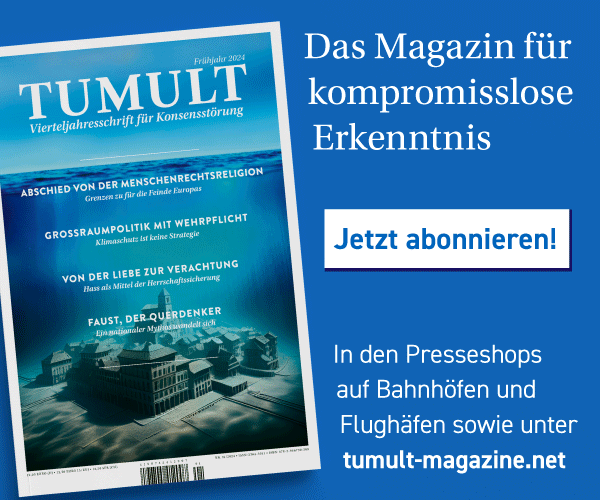Meine Kollegin Munira Mirza veröffentlicht heute einen neuen Bericht über die Einstellungen junger britischer Muslime, der es auf die Titelseiten einiger britischer Tageszeitungen geschafft hat: “Multiculturalism ‘drives young Muslims to shun British values’” schreibt die Daily Mail; der Daily Telegraph warnt “Young, British Muslims ‘getting more radical’”; in der Sun lesen wir “Islam youths are ‘rejecting UK’”; und auch die Times widmet sich dem Thema unter der Überschrift “Extreme youth: the Muslims who would swap British law for Sharia”.
Nachfolgend der Text der Policy Exchange-Presseerklärung zu Muniras Bericht “Living apart together”.
Für mitlesende Journalisten: Munira steht für Interviews zur Verfügung und kann über Policy Exchange-Kommunikationsdirektor Dr. Steven King erreicht werden: steven.king@policyexchange.org.uk, +44 7774 276783.
Government policy towards Muslims is sharpening differences – Policy Exchange
Major new survey finds younger Muslims much more likely to be inspired by political Islam
Read the full report at http://www.policyexchange.org.uk/images/libimages/246.pdf
‘Think Tank of the Year’ Policy Exchange today releases the results of a major new survey* of the attitudes of Muslims in Britain and the reasons behind the rapid rise in Islamic fundamentalism amongst the younger generation. The authors of ‘Living Apart Together: British Muslims and the paradox of multiculturalism’ conclude that the growth of Islamism must be understood in relation to political and social trends that have emerged in British society and suggests that the way the Government is responding to Islamism is making things worse, not better.
Lead author of the report, Munira Mirza, said: “The emergence of a strong Muslim identity in Britain is, in part, a result of multicultural policies implemented since the 1980s which have emphasised difference at the expense of shared national identity and divided people along ethnic, religious and cultural lines.”
The research finds that there is a growing religiosity amongst the younger generation of Muslims and that they feel they have less in common with non-Muslims than do their parents. Significantly, they exhibit a much stronger preference for Islamic schools and sharia law and place a greater stress on asserting their identity publicly, for example, by wearing the hijab.
o 86% of Muslims feel that “my religion is the most important thing in my life”.
o 62% of 16-24 year olds feel they have as much in common with non-Muslims as Muslims, compared to 71% of 55+ year olds.
o 60% of Muslims would prefer to send their children to a mixed state school, compared to 35% who would prefer to send their child to an Islamic school. There is a clear age difference. 37% of 16-24 year olds preferred to send their children to Islamic state schools, compared to 25% of 45-54 year olds and 19% of 55+ year olds.
o 59% of Muslims would prefer to live under British law, compared to 28% who would prefer to live under sharia law. 37% of 16-24 year olds prefer sharia compared to 17% of 55+ year olds.
o 31% of 16-24 year olds believe if a Muslim converts to another religion they should be punished by death, compared to 19% of 55+ year olds.
o 7% “admire organisations like Al-Qaeda that are prepared to fight the West’. 13% of 16-24 year olds agreed with this statement compared to 3% of 55+ year olds.
o 74% of 16-24 year olds would prefer Muslim women to choose to wear the veil or hijab compared to only 28% of 55+ year olds.
Mirza cautioned: “We should be wary of treating the entire Muslim population as a monolith with special needs that are different to the rest of the population. There is considerable diversity amongst Muslims, with many adopting a more secular approach to their religion and a majority feeling they have as much, if not more, in common with non-Muslims in Britain as with Muslims abroad. There is clearly a conflict within British Islam between a moderate majority that accepts the norms of Western democracy and a growing minority that does not.”
o 21% of Muslims have consumed alcohol. 65% have paid interest on a normal mortgage. 19% have gambled. 9% have admitted to taking drugs.
o 59% of Muslims feel they have as much, if not more, in common with non-Muslims in the UK as with Muslims abroad.
The research shows that the rise of Islamism is not only a security problem, but also a cultural problem. Islamism is strongly coloured by anti-Western ideas but these views are not exclusive to Muslims and can also be found in wider society. Mirza said: “There has also been a weakening of older collective identities, notably the undermining of Britishness and the decline of working-class politics, which has led to a feeling of disengagement amongst young people more generally. Some Muslims are therefore turning to religion as part of a search for meaning and community. They increasingly look to the abstract and global ummah.”
o 41% named foreign policy as an important issue to Muslims but they are not necessarily more informed or engaged than the wider population.
o Only 18% of Muslims could name the President of the Palestinian National Authority and only 14% could name the Prime Minister of Israel.
o 58% believe that “many of the problems in the world today are a result of arrogant western attitudes. 30% of the general population agrees.
o 37% believe that “One of the benefits of modern society is the freedom to criticise other people’s religious or political views, even when it causes offence”. 29% of the general population believes the same.
Mirza continued: “Religiosity amongst younger Muslims is not about following their parents’ cultural traditions, but rather, their interest in religion is more politicised. Islamist groups have gained influence at local and national level by playing the politics of identity and demanding for Muslims the ‘right to be different’.”
The report also found that the authorities and some Muslim groups have exaggerated the problem of Islamophobia, which has fueled a sense of victimhood amongst some Muslims.
o Despite widespread concerns about Islamophobia, 84% of Muslims believe they have been treated fairly in this society.
o 28% of Muslims believe that authorities in Britain go over the top in trying not to offend Muslims.
o 75% believe it was wrong for a local council [High Wycombe] to have banned an advertisement for a Christmas carol service in 2003 for fear it would cause tensions.
o 64% believed it was wrong for a council [Dudley] to have banned all images of pigs from its offices (on calendars, toys, etc) in 2005, for the reason that they might offend Muslims’ feelings.
Mirza concluded: “Government policies to improve engagement with Muslims make things worse. By treating Muslims as a homogenous group, the Government fails to see the diversity of opinions amongst Muslims, so that they feel more ignored and excluded. The Government should stop emphasising difference and engage with Muslims as citizens, not through their religious identity. The ‘Muslim community’ is not homogenous but the negative effects of multiculturalism are particularly acute for Muslims, but are also experienced by many other minority groups.
“Islamism is only one expression of a wider cultural problem of self-loathing and confusion in the West. One way to tackle this is to bring to an end the institutional attacks on national identity - the counterproductive cancellation of Christmas festivities, the neurotic bans on displays of national symbols, and the sometimes crude anti-Western bias of history lessons - which can create feelings of defensiveness and resentment. We should allow people to express their identity freely and in a climate of genuine tolerance. Society needs to work to renew a sense of collectivity that asserts our British and Western values in a way that inspires the younger generation.”
* The polling company, Populus, conducted a quantitative survey of 1,003 Muslims in the UK, through telephone and internet questionnaires. Telephone interviews were generally conducted in English but in a minority of cases the interview was conducted in a different language if requested by the respondent. The answers were weighted to represent the demographic of the Muslim population in the UK. Some further questions were asked to 1,025 people from the general population in an omnibus survey for points of comparison.









